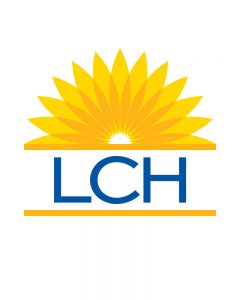 The LCH clinical team behind Tu Salud (Your Health), a clinical study that explored the impact of integrating technology with patient care for people with diabetes with low literacy/low numeracy skills, reflected on the significant results of the study during a panel session for healthcare professionals last week.
The LCH clinical team behind Tu Salud (Your Health), a clinical study that explored the impact of integrating technology with patient care for people with diabetes with low literacy/low numeracy skills, reflected on the significant results of the study during a panel session for healthcare professionals last week.
Over 300 participants across the country registered to join the panel webinar presentation. On the panel representing LCH was Family Nurse Practitioner Fatima Sattar, MSN, CRNP, FNP-C, PMHNP-BC, and Medical Assistant Johana Guzman, CMA. Sattar was one the LCH providers involved in the clinical study and Guzman trained fellow LCH staff as well as patients on how to install, connect, and understand the technology. Other panelists included Larry Katz, PhD, Elizabeth Holt, MD, FACE, Head of Global Medical, Clinical and Safety at LifeScan, and Lorena Drago, MS, RD, CDN, CDCES, Multicultural Nutrition Education Expert, ADCES, Diversity, Equity, and Inclusion Chair and In Practice Editorial Board.
The study, which was published in Diabetes Spectrum, a peer-reviewed journal of the American Diabetes Association, showed that using LifeScan’s OneTouch Verio Flex® meter with a Spanish-language version of its OneTouch Reveal® mobile application (app) led to significant and sustained improvement in diabetes management. Blood glucose levels not only improved, but patients reflected that they had a better understanding of their diabetes as well. Read the full press release about the study from LifeScan.
“The Tu Salud study gave LCH a data driven format to demonstrate our ability to efficiently identify and enroll clinical study participants and conduct clinical trials that are meaningful to our patients in our community’, said Chief Executive Officer Ronan W. Gannon. “Regardless of literacy or numeracy level, technology is a part of our everyday lives, and our patient engagement needs to follow suit.” Sattar commented during the panel that “most patients, regardless of demographic or education level, always have their phones with them. By incorporating the app into the cell phone technology that they already have, patients are set up for success when it comes to actively managing their health and wellness.”
“There is an urgent need to address the disparities in diabetes outcomes experienced by communities in the US that are socioeconomically disadvantaged. In particular, African Americans and Hispanics with diabetes generally exhibit worse glycemic measures and poorer outcomes relative to non-Hispanic whites1,2,” said Dr. Elizabeth Holt, Head of Global Medical, Clinical, and Safety, LifeScan. “The Tu Salud study findings reinforce the importance of providing people with diabetes with relevant tools that give meaning to their glucose numbers and foster greater understanding of how to manage the condition. The findings show that with the right tools and support, people can build their skills and achieve better results.”
1 Saydah S et al Race and ethnic differences in glycemic control among adults with diagnosed diabetes in the US. Ethn Dis 2007;17:529–535
2 Karter AJ et al. Ethnic disparities in diabetic complications in an insured population. JAMA 2002;287:2519–2527




